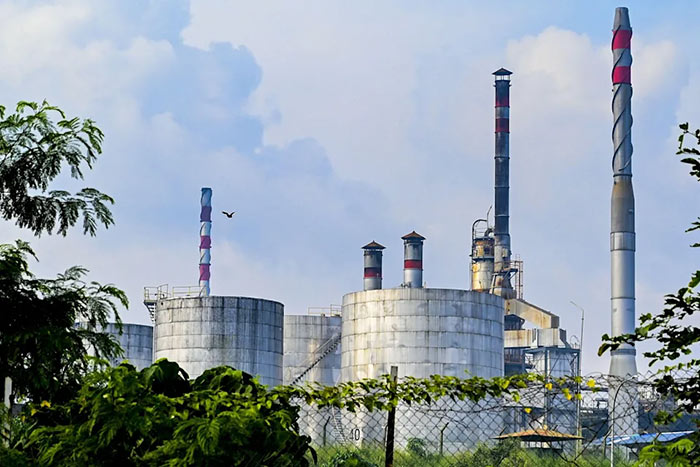Sri Lanka Takes Russia Oil as Fuel Crisis Persists

Sri Lanka is receiving Russian crude oil that it will use to make fuel as the bankrupt nation faces crippling shortages of everything from gasoline to diesel.
The Russian grade of Siberian Light will be processed at Ceylon Petroleum Corp.’s refinery in Sapugaskanda, Chairman Sumith Wijesinghe said in a phone interview. The country’s sole refinery is set to receive crude on May 28, enabling its restart for the first time in over two months, according to its power and energy minister in an earlier tweet.
Sri Lanka is the latest Asian nation to accept Russian crude after Moscow’s invasion of Ukraine prompted widespread condemnation and sanctions. Most refiners in the US and across Europe have halted purchases from the OPEC+ producer, prompting the cost of Russian oil to plummet, while opportunistic buying from Asian customers in China and India has surged.
The Sapugaskanda refinery is using Siberian Light crude, said Wijesinghe. It’s one of several grades of crude that our refinery can process, alongside Abu Dhabi’s Murban and Iranian Light oil, he said. It’s still unclear how Sri Lanka will be paying for the shipment.
“Sapugaskanda refinery will commence operations for first time since March 20 with a crude oil cargo unloading tomorrow,” minister Kanchana Wijesekera tweeted on May 27. “The refinery will start producing fuel oil in six days.”
The vessel Nissos Delos, carrying a cargo of Siberian Light, has moved to a single-point mooring from where it can discharge, after being anchored nearby for a month, according to ship-tracking data compiled by Bloomberg. It loaded at the Black Sea port of Novorossiysk on March 29 and is chartered by a trader by the name of Coral Energy.
Sri Lanka has been facing its worst financial crisis of the country’s independent history, with shortages of everything from food to oil. Fuel supplies are so low that the government told citizens not to queue for gasoline at filling stations. The nation has been trying to come up with cash to pay for oil that’s been sitting on tankers off its coast as its fuel crunch persists.
(Bloomberg)
Latest Headlines in Sri Lanka
- Sri Lanka Parliament launches weekly probe into 323 uninspected containers January 27, 2026
- Six Gampaha police officers interdicted over alleged assault on priest January 27, 2026
- 84 arrested for bribery in Sri Lanka during 2025 CIABOC raids January 27, 2026
- Shiranthi Rajapaksa seeks new date to appear before FCID January 27, 2026
- Sri Lanka launches advanced train driver simulator training programme January 26, 2026


